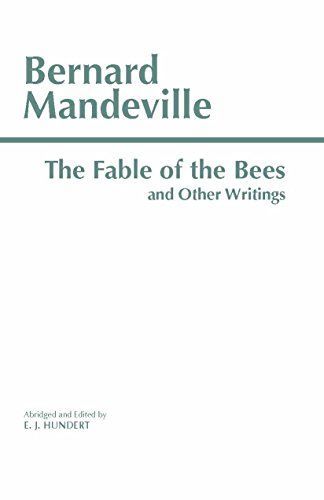
The Fable of the Bees and Other Writings
Although never censored, Bernard Mandeville's anonymously published The Fable of the Bees; or Private Vices, Public Benefits came to be regarded soon after its publication in 1723 as the Enlightenment's epitome of immorality. As a naturalistic account of the mechanisms that condition human desire and of the unintended stabilizing social consequences of self-interested action, it has since been recognized as one the eighteenth century's most significant works of social theory. More sharply focused on Mandeville's social theory than any previous collection of his writings, this abridged and modernized edition includes the most pertinent sections of The Fable, a selection from Mandeville's An Enquiry into the Origin of Honor, and essential background reading from two of Mandeville's most important sources: Pierre Bayle and the Jansenist Pierre Nicole. E. J. Hundert's Introduction places Mandeville in a number of central eighteenth-century debates - particularly that of the nature and morality of commercial modernity - and underscores the degree to which Mandeville's reconception of egoism as a positive social force stood as a central problem, not only for his immediate English contemporaries, but for such philosophers as Hume, Rousseau, and Kant.